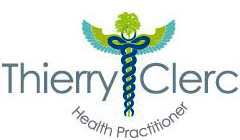This article on homeopathic and nutritional strategies for restless legs syndrome was written for a Therapist social website, and is re-published on this website.
Thierry Clerc practices in Cambridge (UK) as a clinical homeopath and a nutritionist. He is a regular contributor of several national and international health magazines.
Restless legs syndrome is classified as a neurological disorder. It is characterized by an irresistible urge to move one’s body to stop uncomfortable or odd sensations. While it most commonly affects the legs, some people are also affected on their arms, torso, head. There are even reported cases of restless syndrome impacting phantom limbs (limbs that have been amputated). The accompanying sensations are usually tickling, burning or prickling This is what triggers the involuntary jerking.
It is estimated that about 5 to 10% of the general British population is affected by it. While conventionally, the cause is unknown, genetic links are currently being investigated. Restless legs syndrome is also associated with diabetes, iron or vitamin B deficiency. This provides the first step for a holistic approach: the body, and especially its nervous system, is probably undernourished, and cannot respond properly to normal neural triggers. So nourishment and address any cause that prevents the body to break down and absorb food will be necessary.
There are other triggers to restless legs syndromes: drugs withdrawal, especially from Anti-depressants, calcium channel blockers, antihistamines, is a common one. The over-consumption of substances that can disrupt the nervous system, such as sugar, coffee or tea needs also to be investigated. If you suspect this is the case, a detoxification programme and suggesting the client with sound dietary choices will be required.
Finally, the nervous system will need to be re-balanced, and homeopathy is one of the most effective approach for restless legs syndrome. Homeopathy is one of the most popular alternative approach in the world, and works by providing lowly or ultra-diluted and potentised substances, that will trigger a healing reaction to the body. Alongside the general support programme, providing a remedy that fits the symptoms of the syndrome will provide relief and speed up healing. Gathering information such as when the syndrome occurs most (usually but not always during the early hours of the night), or what makes it better or worse will greatly help. Good case-taking is key.
Thierry Clerc, MARH, RHom, MSc
Registered Health Practitioner
Clinical Homeopathy, Bioresonance, Nutrition & Allergy

